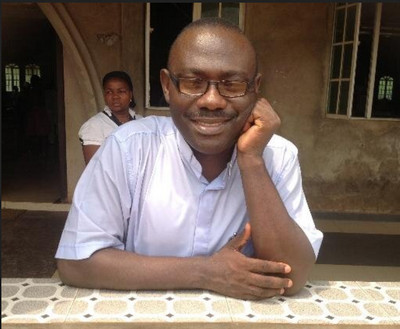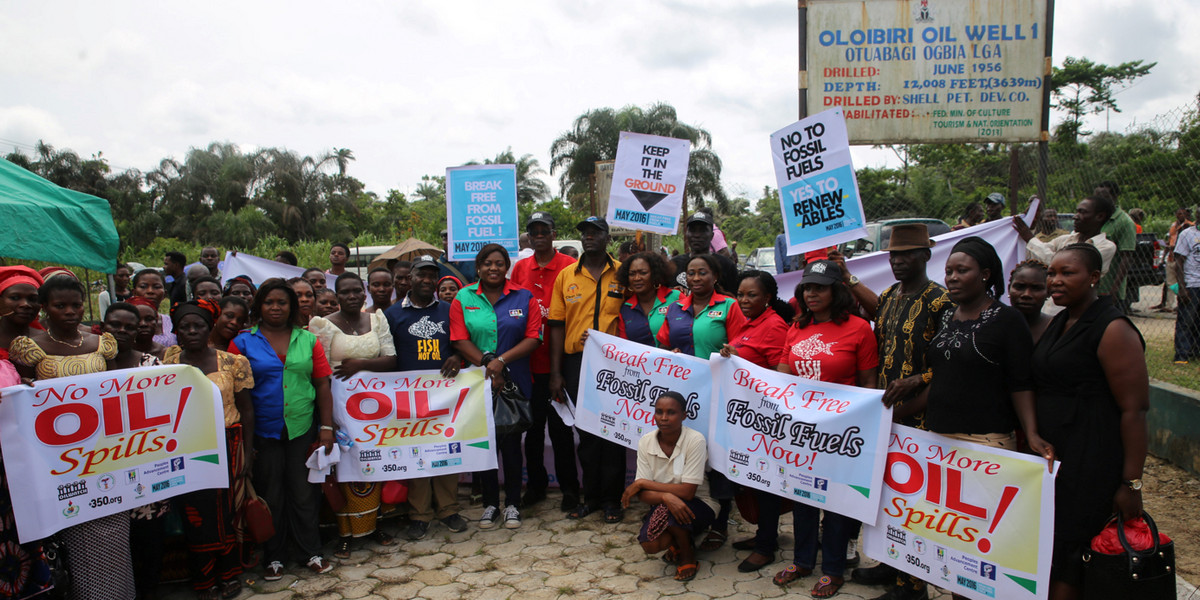Interview with Fr. Chika Onyejiuwa, Executive Secretary of the Africa Europe Faith and Justice Network (AEFJN).
On 17 and 18 February 2022, the leaders of the European Union (EU) and the African Union (AU) and their respective Member States will convene in Brussels for the sixth European Union-African Union summit. The Summit aims to revitalise the Africa-EU partnership and enhance collaboration based on trust and a clear understanding of common interests. However, CIDSE and other civil society organisations (CSOs) are worried that the efforts to create an equal and fair partnership are entrenched in past colonial and postcolonial cooperation and are challenged by structural and systemic inequalities between the two parties.

Fr. Chika Onyejiuwa agreed to share with CIDSE his concerns about this partnership. He comes from Nigeria and is the Executive Secretary of the Africa Europe Faith and Justice Network (AEFJN), a human rights organisation advocating for the African Continent’s dignity, rights, and freedom and its People. He is also a member of the African Platform “Our Land is Our Life” (OLOL).
What is your background and experience around climate justice and human rights, advocacy and awareness-raising? What motivates you?
I identify myself first as a religious, before priesthood. After finishing my university degree in Bio-Chemistry in Ibadan, I joined a community in the Creed of Niger Delta in 1989. I witnessed corporate impunity of companies such as Shell Petroleum and Chevron oil companies which polluted the rivers with oil spills on which the communities depended for their livelihoods. There was also an increase in ocean level that wiped away communities very near the Atlantic Ocean. I saw the disastrous impact of oil exploration and extraction on people’s lives and the environment. It is a shocking experience to realise that you cannot use the water, even though you are surrounded by it.
“Nigeria has the biggest economy in Africa. Yet, it has the highest number of poor people in the world. I lived with these communities in the creeks of Niger Delta for eight years; I know the harsh reality that people are dealing with.“
Do you think that the voices of African communities are sufficiently represented in the EU-AU Summit?
It is evident that AU and EU are not equal; the AU does not have the capacities and resources that the EU has. We need to reflect upon the colonial and imperial mentality that still dictates a significant part of the current EU-AU dialogues. It is essential to take a closer look at the extent that the Africa-EU partnership has contributed to responding to the aspirations and needs of the African people. Instead of treating Africa’s basic needs, such as food and poverty, the Summit appears to be unrealistically referring to topics that do not belong to the primary priorities of the African continent: Green Transition, Digital Transformation, Sustainable Growth, Peace, Security and Governance and Migration. This makes us wonder whether the EU-Africa relationship is indeed an honest one since it still appears that the EU drives most of the dialogues and conversations.
To my understanding, in a partnership, every person brings what they have on the table and see how they can better contribute to the goals decided. If not, it is not a partnership; it is a reload of the colonial mentality, embellished in modern terms and not responding to the needs of the African people. Nigeria has the biggest economy in Africa. Yet, we have the highest number of poor people in the world. Politicians, stakeholders, and decision makers should recognise people’s basic needs and make people and their environment the centre of their policies and political decisions.
Could you tell us more about what the priorities of the EU-AU Summit should be?
I believe the EU should set its priorities by listening to the voices of the people and responding to their needs and taking active action to stop the systematic violations of the rights of African communities. The EU should therefore play a more active and positive role in the negotiations for a UN binding treaty on business and human rights.
I do not wish to see a partnership that continues to support the rich and powerful, prioritizing GDP over the well-being of people and the environment and talking about employment when natural resources are running out in Europe and other parts of the world.
I wish to see an EU that creates more civic participation and engagement. Let’s be honest about a genuine partnership with Africa; the voices of local people should be heard and be taken into real account. This is why AEFJN will participate in the counter Summit of the People.
Why is AEFJN involved in the Peoples’ Summit?
AEFJN’s values, as well as my personal ethics and moral, resonate with the objectives and goals of the People’s Summit; solidarity with the poor, fight injustice, stop spiritualizing poverty, raise awareness, and help raise the voices of the people that are in need. I believe in improving people’s living conditions, in the here and now, not making promises about the “afterlife”.
In your opinion, how do you think the current pandemic has influenced the EU-AU relationship?
It has not really changed anything. From the example of the COVID-19 vaccine distribution in Africa, we can spot a significant inequality regarding vaccination levels and the accessibility to treatment and health care. The EU’s response to Africa to the pandemic was very disappointing: medical equipment, staff and resources arrived late, leaving our people helpless. If the EU were to consider Africa an important partner and aware of Africa’s capacity to respond to health emergencies; probably their response would have been different.
Additional reading
- Africa’s Challenges at the Africa–European Union Summit, AEFJN, January 2022
- Economic Summits: Supporting Africa or another scramble for Africa?, AEFJN, January 2022
Cover Photo: Break Free Nigeria action at Oloibiri Well 1, 10 May 2016 by Babawale O. Obayanju, Creative Commons

